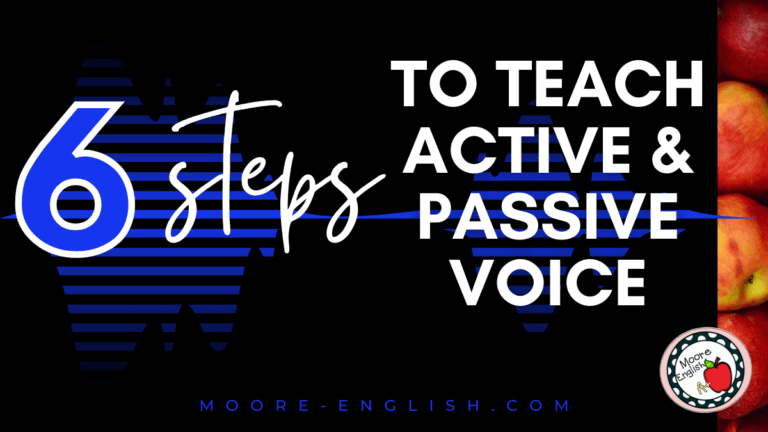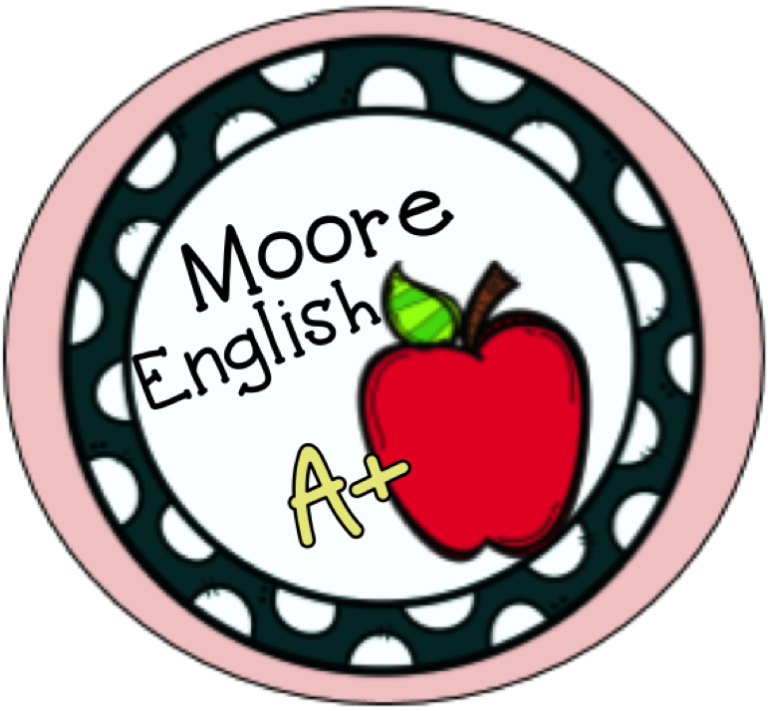While I am a huge fan of fast formative assessments, I also uses regular quizzes in my classroom. Every two weeks, my students take a grammar and vocabulary quiz. During novel studies, I assign periodic quizzes. When students act out classroom dramas like The Crucible or Shakespeare’s plays, I give a quiz after every act. With that in mind, I have several strategies for making sure quizzes are opportunities for collaboration and reflection.
Quiz Design
Before we dive into my strategies, I want to take a moment to discuss assessment design. For quizzes to be collaborative opportunities, questions cannot be recall or comprehension based. Instead, the questions have to require some inference, analysis, synthesis, or evaluation. These kinds of questions allows students to debate and wrestle with ideas rather than simply remembering details from the text. However, there are absolutely times when a comprehension quiz is necessary. For example, at the end of To Kill a Mockingbird, I always ask students how Bob Ewell died. I do the same thing at the end of The Great Gatsby. But comprehension-style quizzes have much lower stakes for me. In fact, I usually just call them exit slips and use them as purely formative data.
Collaborative Quizzes
Assessment can be isolating for students, but the best learning often happens through dialogue. Rather than making quizzes a one-on-one duel, provide students with an opportunity to take quizzes in pairs or small groups. When I use this strategy, each student is still responsible for turning in his or her own copy of the quiz, partners do not have to have identical answers, and any written responses cannot be word-for-word identical. As students quiz, I walk around the room and listen to their conversations. Almost always the weight of the quiz itself is enough to keep students on task, and their dialogue is great! They debate answers, arguing for some and against others. Students challenge each other, but the context of the quiz keeps those doubts from becoming personal. Plus, students become better at explaining their thinking in these situations.
Quizzes with Built-in Reflection
I regularly send quizzes home with students. Before students take home their first quiz, we discuss the resources they have at home. I expect them to use their books and to phone a friend. They always ask if they can Google the answers, and I tell them they can try. But, again, most of the questions I’m asking are not readily found on the Internet. I don’t know that I can make any question 100% Google proof, but if I’m sending a quiz home, you can bet the questions require some higher-level thinking.
After students take home a quiz, class the next day always begins with an entrance ticket asking students to reflect on the quiz. What worked? What was a struggle? And what skills or concepts do you feel confident in? What skills or concepts would you like to review? Sometimes these reflections encourage me to call an immediate audible. More often than not, they cause me to restructure a lesson later on in the week or unit.
This post this post may contain affiliate links. Please read the Terms of Use.
Quiz Magic: The Two-Minute Drill
A natural consequence of take-home quizzes is that students come to class the next day and immediately want to compare answers. Rather than fight this, I lean into this practice. After students complete their entrance ticket, I give them two minutes to talk to anyone they want about the quiz. While students do this, I walk around to make sure there aren’t any blank pages. If there are, that student will go finish the quiz independently in the hallway.
After the two minutes have passed, I assign each student a number from the take-home quiz. The student is responsible for explaining the correct answer to that question. Once each student has a number, I put one more minute on the clock to allow students a chance to practice their explanation for their classmates.
Then, students trade their quiz to a classmate, and we go through each question with students explaining their answer in turn. As we go, students grade for a classmate (the first time, students grade for themselves but I explain that next time they’ll trade and grade). But more importantly, students can ask their classmates clarifying questions, and students can argue for or against an answer. As with the collaborative quizzes, this provides students with an opportunity to defend their thinking and to practice articulating their thinking. After using this strategy 2-3 times, students become used to this and begin to look forward to the practice.
Quiz FAQs
Q: If students are just taking this home, is it really a quiz?
A: The name “quiz” gives an assignment gravitas, so it makes sure students take the work seriously. For some teachers, “quizzes” also have a different weight in the grade book.
Q: What about test security?
A: I rarely give the same quiz two years in a row. Most of my quizzes are Google Forms or Google Docs. I keep a “master” copy with 20-30 questions, and each time I give the quiz, I choose the 5-15 questions my particular group of students most need to focus on. Of course, there are some questions that seem to endure from year to year, but if I’m continually adjusting the quiz questions to meet the needs of a given group of students, then the questions aren’t in the same order, and that’s usually deterrent enough. This might mean that in the same year I don’t give the same quiz to different sections of a course.
Q: Aren’t quizzes supposed to prepare students for a test? How are collaborative quizzes getting students test ready?
A: This comes up most of the time with grammar and juniors getting ready for the ACT. When this happens, I start timing junior grammar quizzes based on the ACT’s timing constraints. I also, then, have students write their grade as it would have been before the two-minute drill and what it actually was with any answers they changed because of the two-minute drill. That also gives students an idea of how much they know independently and what more they need to study before the test.
Q: What about pop quizzes?
A: Pop quizzes are as much about classroom management as they are about instruction. In a pop quiz, teachers weaponize assessment as a means of promoting engagement. That almost always backfires. Students come to assessments with a lot of assessment baggage, so each pop quiz just adds more negativity to assessment. If the issue really is curricular, try an exit ticket. On the other hand, if the issue is really engagement, try adding movement to instruction to promote engagement.
Still looking for quiz ideas? Find more inspiration for assessment on my Pinterest board. How do you incorporate quizzes into your practice? Let us know in the comments below.








